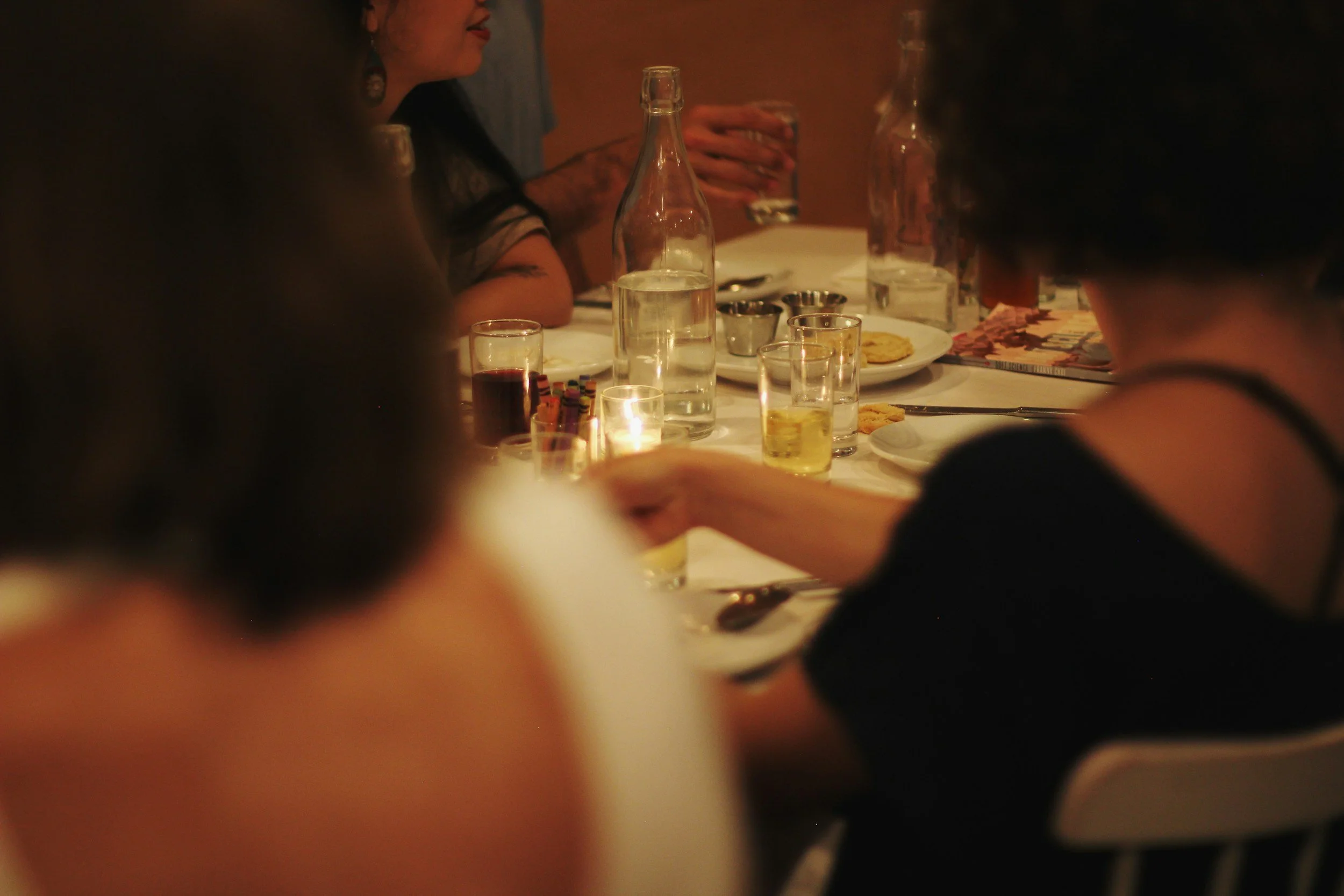Media Coverage of THE FIVE PERCENT
5/1/11, Arts Journal
5/2/11, State of the Planet Q&A
5/31/11, KVON, interview with Jeff Schechtman
6/8/11, KERA "Think" (podcast)
7/19/11, The Forward "Arty Semite" blog
8/1/11, Jefferson Public Radio, Jefferson Exchange
8/12/11, Huntington News
8/17/11, BookTalk.org
8/20/11, ZenPundit.com
8/26/11, MindConnection.com
8/27/11, Forbes.com
8/28/11, Startup Professional Musings
8/30/11, ADR Times
9/16/11, ChangingMinds.org
9/17/11, The Law Insider
9/20/11, State of the Planet blog, "Our Weatherbeaten Nation"
9/22/11, Forbes.com
9/23/11, Yale Forum on Climate Change and the Media
9/29/11, Psychology Today
10/3/11, Psychology Today
October 2011, The Negotiator Magazine
October 2011, Mediate.com
10/14/11, Psychology Today
10/24/11, WAMU, The Kojo Nnamdi Show
10/25/11, Psychology Today
10/27/11 University of Denver Conflict Resolution Institute
10/15/11, Rochester Democrat and Chronicle
10/28/11, ICCCR blog
10/18/11, ADR Times
11/7/11, WUWM, Lake Effect
11/22/11, International Focus webcast
12/1/11, Teachers College, Columbia University
12/16/11, This American Life
2/2/12, WILL, Illinois Public Media, "Focus"
2/3/12, Psychology Today
3/3/12, WRVO, the Campbell Conversations
4/30/12, AC4 Columbia “Conversations on the Leading Edge”
July 2012, APA, Monitor on Psychology
8/17/12, Independent Voters of America blog
10/23/12, TedxMia 2012 "Framing the Future"
11/6/12, State of the Planet blog
January 2013, Rethinking Intractability: A New Framework for Conflict (review)
2013, Playing the Percentages in Wicked Problems: On the Relationship between Broccoli, Peace-keeping, and Peter Coleman’s The Five Percent
9/15/14, Dealing with ISIS
3/17/15 State of the Planet Blog
November 2016, Beyond Intractability Part 1
November 2016, Beyond Intractability Part 2
11/23/17, Amherst Media
8/26/17, ICERM Radio
December 2017, Mediate.com
3/22/18, State of the Planet blog
5/16/18, The Hill
6/27/18, The Guardian
8/26/18, The Stanley Foundation
9/28/18, Peace Talks Radio
11/20/18, New York Times
12/20/18, Columbia News
3/7/19, AlleyWatch
Huffington Post Op/Eds
3/19/10, Leadership in the Time of Obama
1/19/11, Washington is Fixed and Needs to be Broken
3/7/11, Give Peace a (Last) Chance
4/22/11, Bottom-Up Peace
5/20/11, Seasons of Change in the Arab World
5/27/11, Are Peacemakers Helping or Harming? Conflict Resolution and the Science- Practice Gap
6/10/11, Ethnic Divisions and the Fall of the Arab Spring: What's in a Name?
7/5/11, The Mathematics of Middle East Conflict and Peace
9/20/11, The Mandela Doctrine: Lessons for Obama
10/18/11, Awakening to Women: The Nobel Effect
2/3/12, President Obama's Mixed-Motive Dilemma
5/14/12, The Decade for Peace in Israel-Palestine
8/16/12, America Needs Political Shock Therapy
11/5/12, Why Politics Are Stuck in the U.S.
11/27/13, The Beginning of Peace?
8/29/14, Mad With Power?
9/17/14, The Power of Moral Complexity
2/14/15, Inequality on the Rise? Workers of America Adapt
12/7/15, A Vision of Peace for America
7/11/16, Racism and Violence in America: What are White Allies to do?
7/24/16, Don’t Blame Trump: Heal Thyself, America
11/21/16, A 9-Point Strategy For Progressive Resistance, Resolution And Reconciliation In Trump’s America
8/10/17, World Peace: How Do We Keep Nations from Thermonuclear War?
8/17/17, What Leads to Cooperation and Competition?
8/26/17, Understanding Conflict: How Conflict is like Sex?
8/31/17, When does Conflict Move in a Good or Bad Direction?
9/7/17, What are the Fundamental Dimensions of Social Relationships?
9/14/17, A Grand Theory of Personality and Environment
9/21/17, Addressing Injustice: Why and How do People Seek Justice?
9/28/17, Getting Woke: How do we Awaken a Sense of Injustice?
10/5/17, How do we interrupt the Increasing Gap between the Haves and Have-Nots?
10/12/17, How can we Promote a Sense of Global Community?
10/12/17, Revolting: A Ten-Point Strategy for Responding to Sexual Harassment
11/10/17, De-Polarizing America: What Citizens can do to Unite our Nation
Further Reading: Academic Journal and Book Publications
Liebovitch, L., Coleman, P. T., and Fisher, J. (forthcoming). Approaches to Understanding Sustainable Peace: Qualitative Causal Loop Diagrams and Quantitative Mathematical Models. American Behavioral Scientist.
Coleman, P. T., Liebovitch, L. and Fisher, J. (forthcoming). Taking complex systems seriously: Visualizing and modeling the dynamics of sustainable peace. Global Policy.
Fisher, J. and Coleman, P. T. (forthcoming). The fractal nature of intractable conflict: Implications for sustainable transformation. In L. Kriesberg, L. & C. Gerard (Eds.) Transforming Intractable Conflict. Rowman and Littlefield International.
Coleman, P.T., and Liebovitch, L.S. (forthcoming). Peacebuilding and sustaining peace through complexity and systems theory. Chapter for Zartman, W. I (Ed.), Processes of International Negotiation.
Liebovitch, L. S., Coleman, P. T., Futran, D., Lee, D., Lichter, T., Burgess, N., Maksumov, D.,& Celine, R. (2018). Modeling the dynamics of sustainable peace. In U. Strawinska-Zanko & L. S. Liebovitch (Eds.) Mathematical Modeling of Social Relationships. New York: Springer, in press.
Coleman, P. T. (2018). Conflict intelligence and systemic wisdom: Meta-competencies for engaging conflict in a complex, dynamic world. Negotiation Journal, 34, 1, pp. 7-35.
Coleman, P. T., Coon, D., Kim, R., Chung, C., Regan, B., Anderson. R., & Bass, B. (2017). Promoting constructive multicultural attractors: Fostering unity and fairness from diversity and conflict. Journal of Applied Behavioral Science.
Coleman, P. T., and Ricigliano, R. (2017). Getting in Sync: What to do when problem solving fails to fix the problem. In A. Schneider & C. Honeyman (Eds.), The Negotiator’s Desk Reference (pp. ). Chicago: American Bar Association Books.
Coleman, P. T., Redding, N., & Fisher, J. (2017). Understanding Intractable Conflict. In A. Schneider & C. Honeyman (Eds.), The Negotiator’s Desk Reference (pp. ). Chicago: American Bar Association Books.
Coleman, P. T., Redding, N., & Fisher, J. (2017). Influencing Intractable Conflict. In A. Schneider & C. Honeyman (Eds.), The Negotiator’s Desk Reference (pp. ). Chicago: American Bar Association Books.
Levent, K., Kugler, K. G., Coleman, P. T. and Liebovitch, L. S. (2013). Behavioral and emotional dynamics of two people struggling to reach a consensus on a topic on which they disagree. PLOS ONE, January 10, 2014.
Nowak, A., Bui-Wrzosinska, L., Vallacher, R., & Coleman, P. T. (2012). Complexity and peace. In P. T. Coleman, M. and Deutsch (Eds.), Psychology’s Contributions to Sustainable Peace. Springer.
Vallacher, R., Coleman, P. T., & Nowak, A., Bui-Wrzosinska, L. (2012). Why do conflicts become intractable? The dynamical perspective on malignant social relations. In L. R. Tropp (Ed.), The Oxford Handbook of Intergroup Conflict. New York: Oxford University Press.
Bui-Wrzosinska, L., Coleman, P. T., Vallacher, R., Nowak, A., & Bartoli, A. (2012). Moving from a system of war toward a system of peace: A dynamical systems perspective on peacemaking. In A. Bartoli, S. Allen-Nan (Eds.), Peacemaking.
Vallacher, R., Coleman, P. T., & Nowak. A. (2012). Dynamical systems theory: Applications to peace and conflict. In D. Christie and C. Montiel (Eds.), The Encyclopedia of Peace Psychology. Wiley-Blackwell. Named American Library Association Outstanding Reference Source of 2013.
Goldman, J., Coleman, P. T., and Kugler, K. (2011). Humiliation and protracted conflict: Theoretical, experimental, and methodological findings. In E. Lindner and Hartling, L. M. (Eds.), Humiliation and Human Dignity. Springer-Verlag.
Liebovitch, L. S., Vallacher, R. R., Nowak, A., Coleman, P. T., Bartoli, A., &Bui-Wrzosinska, L. (2011). Mathematical models of the dynamics of conflict. In A. W. Davidson & M. A. Ray (Eds.), Nursing, caring and complexity science: for human-environment well-being. New York: Springer.
Vallacher, R., Coleman, P. T., Nowak, A., Bui-Wrzosinska,L. (2010).Rethinking intractable conflict: The perspective of dynamical systems. American Psychologist, 65 (4), 262-278.
Dynamical foundations of intractable conflict: Introduction to the special issue. Peace and Conflict: The Journal of Peace Psychology, 16(2), 113-125.
Praszkier, R., Nowak, A., and Coleman, P. T. (2010).Social entrepreneurs and constructive change: The wisdom of circumventing conflict. Peace and Conflict: The Journal of Peace Psychology, 16(2), 153-174.
Musallam, N., Coleman, P.T., and Nowak, A.(2010).Understanding the spread of malignant conflict: A dynamical-systemsperspective. Peace and Conflict: The Journal of Peace Psychology 16(2),127-151.
Nowak, A., Bui-Wrzosinska, L., Coleman, P. T., Vallacher,R., Borkovsky, W., and Jochemczyk, L. (2010). Seeking sustainable solutions: Using an attractor simulation platform for teaching multi-stakeholder negotiation. Negotiation Journal, 26(1), 49-68.
Coleman, P. T., Vallacher, R., Nowak, A., Bui-Wrzosinska, L., Bartoli, A. (2009).A Systemic Approach to Peace: Lessons from Mozambique (In Arabic). In M. Deutsch, P. T. Coleman, and E. Marcus (Eds.) A Guiding Handbook for Conflict Resolution in The Arab World. New York: International Center for Cooperation and Conflict Resolution Publications.
Coleman, P. T., Hacking, A., Stover, M., Fisher-Yoshida, B,and Nowak, A. (2008).Reconstructing ripeness I: A study of constructive engagement in protracted social conflicts. Conflict Resolution Quarterly,26(1), 3-42.
Coleman, P. T., Fisher-Yoshida, B., Stover, M., Hacking,A., and Bartoli, A. (2008).Reconstructing ripeness II: Models and methods for fostering constructive stakeholder engagement across protracted divides.Conflict Resolution Quarterly, 26(1), 43-69.
Liebovitch, L. S., Vallacher, R., Nowak, A.,Bui-Wrzosinska, and Coleman, Peter, T. (2008). Dynamics of two-actor cooperation-competition conflict models. Physica A.
Coleman, P. T., Vallacher, R., Nowak, A.,& Bui-Wrzosinska;, L. (2007).Intractable conflict as an attractor: Presenting a dynamical model of conflict, escalation, and intractability. American Behavioral Scientist, 50(11),1454-1475.
Gray, B., Coleman, P. T., & Putnam, L. L. (2007). Intractable conflict: New perspectives on the causes and conditionsfor change. American Behavioral Scientist, 50(11), 1415-1429.
Coleman, P. T. (2006) Conflict, complexity, and change: A meta-framework for addressing protracted, intractable conflicts - III.
Peace and Conflict: Journal of Peace Psychology, 12(4),325-348.
Coleman, P. T., Schneider, A., James, C. C. F., Adams, D.S., Gameros, T. A., Hammons, L. R., Orji, C. C., Waugh. R. M., & Wicker, R.F. (2005). Intragroup subgroup attitude clustering, external intervention, and intergroup interaction patterns: Toward a dynamical model of protracted intergroup conflict. Peace and Conflict Studies, 12(1), 55-70.
Coleman, P. T. (2004) Paradigmatic framing of protracted,intractable conflict: Towards the development of a meta-framework -II. Peace and Conflict: Journal of Peace Psychology, 10(3), 197-235.
Coleman, P. T. (2003). Characteristics of protracted,intractable conflict: Towards the development of a meta-framework -I.
Peace and Conflict: Journal of Peace Psychology, 9(1), 1-37.Lawrence Erlbaum Associates, Inc.
Vallacher, R., Coleman, P. T., & Nowak, A.,Bui-Wrzosinska, L.
(forthcoming). Why do conflicts become intractable? The dynamical perspective on malignant social relations. In L. R. Tropp (Ed.), The Oxford Handbook of Intergroup Conflict. New York: Oxford University Press.
Bui-Wrzosinska, L., Coleman, P. T., Vallacher, R., Nowak,A., & Bartoli, A. (forthcoming).Moving from a system of war toward a system of peace: A dynamical systems perspective on peacemaking. In A.
Bartoli (Ed.), Peacemaking.
Vallacher, R., Coleman, P. T., & Nowak. A.(forthcoming). Dynamical systems theory: Applications to peace and conflict. InD. Christie and C. Montiel (Eds.), The Encyclopedia of Peace Psychology. Wiley-Blackwell.
Coleman, P. T., Vallacher, R., Nowak, A., Bui-Wrzosinska,L., &Bartoli;, A. (forthcoming).Navigating the landscape of conflict: Applications of dynamical systems theory to protracted social conflict. In Ropers, N. (Ed.), Systemic Thinking and Conflict Transformation. Berlin, Germany: Berghof Foundation for Peace Support.
Liebovitch, L. S., Vallacher, R. R., Nowak, A., Coleman,P. T., Bartoli, A., &Bui-Wrzosinska;, L. (2011). Mathematical models of the dynamics of conflict. In A. W. Davidson & M. A.Ray (Eds.), Nursing, caring and complexity science: for human-environment well-being. New York: Springer.
Coleman, P. T., Vallacher, R., Nowak, A., Bui-Wrzosinska,L., Bartoli, A. (2009).A Systemic Approach to Peace: Lessons from Mozambique(In Arabic). In M. Deutsch, P. T. Coleman, and E. Marcus (Eds.) A Guiding Handbook for Conflict Resolution in The Arab World. New York: International Center for Cooperation and Conflict Resolution Publications.
Nowak, A., Vallacher, R., Bui-Wrzosinska, L.,&Coleman;, P. T. (2006).Attracted to conflict: A dynamical perspective on malignant social relations. In A.
Golec & K. Skarzynska(Eds.),Understanding social change: Political psychology in Poland. HaauppagueNY: Nova Science Publishers Ltd.
Coleman, P. T., Bui-Wrzosinska, L., Vallacher, R., &Nowak;, A. (2006).Approaching Protracted Conflicts as Dynamical Systems:
Guidelines and Methods for Intervention. In A. Schneider& C. Honeyman (Eds.), The Negotiator’s Fieldbook (pp. 61-74).Chicago:American Bar Association Books.


